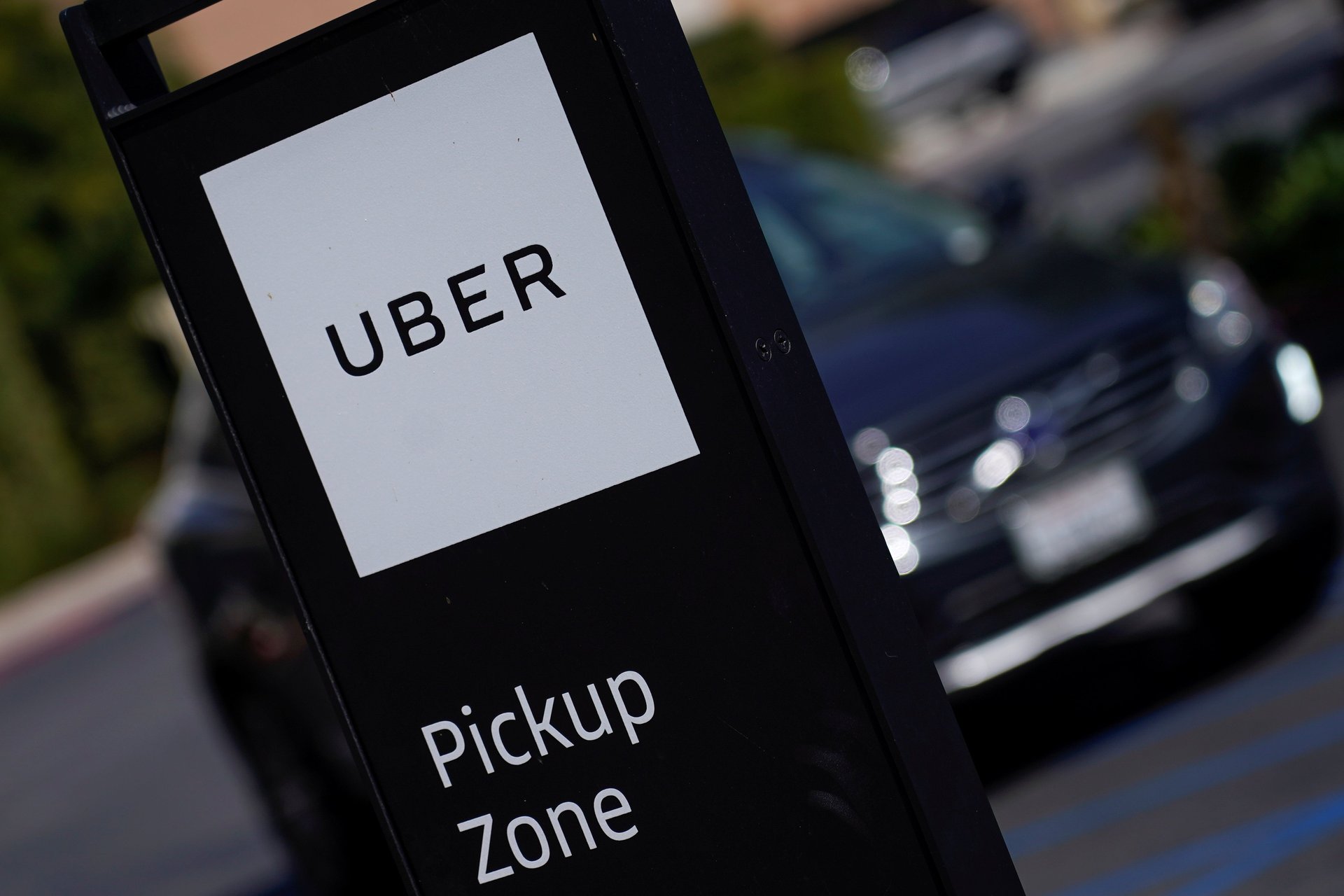Uber’s fare-setting experiment in California could cost drivers
The next time you hail an Uber from airports in Santa Barbara, Palm Springs, and Sacramento, you may notice that the fare is a little lower or higher than usual.


The next time you hail an Uber from airports in Santa Barbara, Palm Springs, and Sacramento, you may notice that the fare is a little lower or higher than usual.
The Wall Street Journal reported Tuesday (Jan. 21) that the ride-hail giant is experimenting with a new fare-bidding pilot program in three California airports. It’s a response to the state’s new AB5 gig economy law, which puts restrictions on how businesses can employ independent contractors.
Uber drivers serving the airports will be able to set their own fares, up to a maximum of five times that of Uber’s base price. Surge pricing will still impact fares: In the first week, drivers who quote fares below Uber’s surge price will receive the higher fare. But after a week, drivers can set their prices below Uber’s surge price or opt out of surge altogether. Based on the results of the pilot program, the company will decide whether to expand the feature state-wide.
The leaders of the gig economy, including Uber, Lyft, and Postmates, are locked in a dispute with the state of California over whether AB5, which went into effect this January, actually applies to them. Under the new law, independent contractors would be reclassified as employees, and entitled to basic labor protections and benefits. This is expected to add an additional 20 to 30 percent in labor costs for companies like Uber.
The fare-bidding system is part of a series of changes that Uber has made in California in an effort to position its drivers as independent contractors and not employees. “Since AB5 has gone into effect, we’ve made a number of product changes to preserve flexible work for tens of thousands of California drivers,” an Uber spokesman told Quartz in a statement.
In January, the company dropped up-front pricing in California, instead opting to calculate fares at the very end of a ride. It also dropped its flat surge system, which quoted the driver a flat rate they would receive when surge pricing goes into effect during peak hours. Instead, Uber reverted to an old system of calculating surge earnings for drivers as a multiple of the fare. It also decided to allow drivers to view a trip’s end destination before choosing whether to accept.
Allowing drivers to set their own fares and choose the trips they take may help Uber make the case that it’s merely a platform for securing jobs, rather than an employer.
But critics of the move aren’t convinced that such moves will benefit drivers. Since jobs go to the lowest bidder under the new rule, some believe drivers will end up earning far less than they did under older regulations. “This may very well mean that drivers are earning less than they are right now because in a desperate effort to out-bid each other, they will lower the fares instead of increase them,” wrote Veena Dubal, a professor at the University of California Hastings College of the Law, in an email to Quartz.
Dubal is also skeptical that any autonomy given to drivers under fare-bidding will save Uber from complying with AB5. “Uber continues to control the starting price. The asymmetry of information also means that neither riders nor drivers really understand how rides will be distributed or why,” wrote Dubal. “Notably, this does not get Uber out from under the existing employment laws in California.”
Ben Valdez, who has driven for Uber for four years, is dubious that any development by the company will benefit drivers. Valdez believes the new fare-bidding system will result in drivers performing airport trips at a loss, sometimes unknowingly. “There are drivers that have not fully calculated what their cost per mile is and would most definitely set the bar at unreasonable levels,” says Valdez. “We have drivers that get excited over making $35 an hour for a 50-mile trip. They aren’t factoring in gas, car payment, insurance, car depreciation, maintenance. There’s always going to be someone who is willing to take less.”
The California Labor Federation, which backs the AB5 law, also criticized Uber’s new feature. “This latest effort is likely to create a race to the bottom that ultimately hurts struggling drivers instead of offering relief,” wrote Steve Smith, Communications Director of the California Labor Federation, in an email to Quartz.
But it’s possible the changes could be only temporary, especially if the state’s courts choose to exempt Uber from the AB5 law. Back in December, Uber and Postmates joined forces and asked a federal judge to issue an injunction against the law. In the lawsuit, the companies argue that the AB5 law is unconstitutional and puts gig economy companies at an unfair disadvantage.
There are signs that the state’s courts could side with the gig economy. Earlier this month, a federal judge ruled that truckers who were employed as independent contractors were exempt from the AB5 law. If both truckers and ride-hail drivers are rules to be exempt, California’s new labor law will pack a lot less punch.